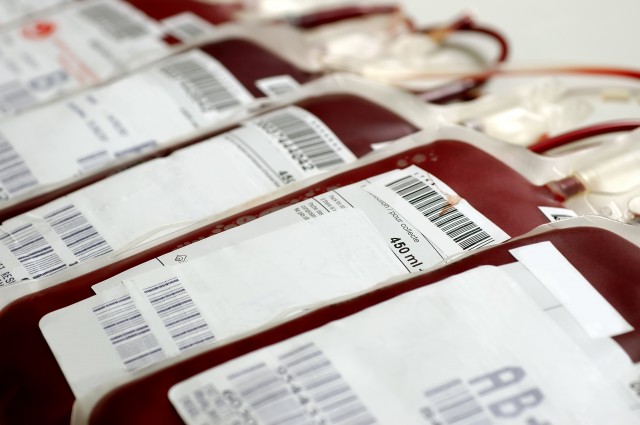By Mina Kim and Peter Shuler
The Food and Drug Administration (FDA) will consider Tuesday lifting a 31-year-old ban on blood donations from gay men.
Originally fueled by fear and little understanding of AIDS, federal regulators in 1983 banned donations from men who have sex with men. Now a federal health advisory committee recommends that the FDA ease that ban, saying that men who have not had sex with another man for a year may donate blood.
Hank Greely is a professor of law and medicine at Stanford and directs the Center for Law and the Biosciences. He reminded listeners of how little we knew about AIDS when the ban was first put in place. "No one really knew what caused AIDS" at that time, he said. "They did know people were getting the disease from transfusions, and that gay men were one of the groups that had the highest incidence of the disease."
But pretty quickly, the HIV virus was identified and tests were developed to see if donated blood contained antibodies to the virus -- indicating the donor was infected with HIV. Originally, Greely said, that process took a couple months, but over the intervening years that window has shrunk to 11 days.
